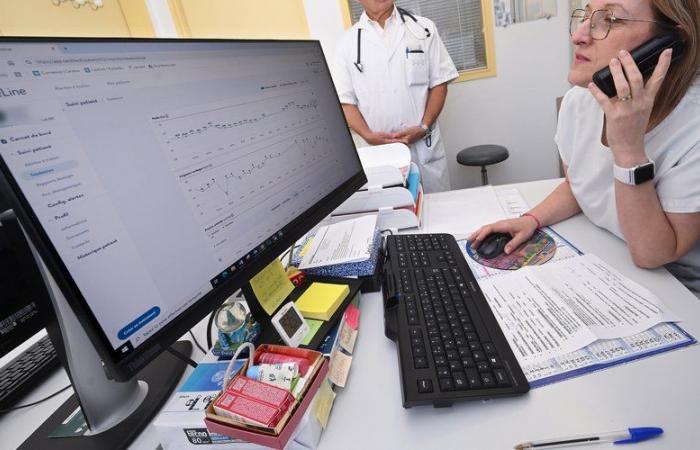
the essential
The Toulouse University Hospital was selected to participate in a national heart failure screening project. The objective is to detect early this little-known disease which affects 1.5 million people in France. See you on November 19 at Rangueil hospital.
Would large-scale screening make it possible to better identify heart failure? This is the challenge of the national DEPIC FR project, supported by the French Society of Cardiology, and in which the University Hospital Center (CHU) of Toulouse participates. On Tuesday, November 19, from 10 a.m. to 4 p.m. all people over 50 will be able to participate in a free screening, in the hall of Rangueil hospital. The test includes a questionnaire (age, symptoms) and taking a small drop of blood from the fingertip to identify a trace of heart muscle dysfunction (when the heart malfunctions, it secretes a peptide). If the result is positive, an echocardiogram will be offered directly, without an appointment, in the cardiology department.
Also read:
Heart failure: mortality halved in 30 years, research is progressing in Toulouse
Avoid heart transplant
“We are participating in the first study on the value of real-life screening. The interest is to detect heart failure early, which is a silent disease with serious consequences if not treated in time,” summarizes the Professor Michel Galinier, head of the cardiology department at Toulouse University Hospital. Currently, nearly 1.5 million people suffer from heart failure but it is estimated that between 400,000 and 700,000 people are not diagnosed (source Health Insurance). Detected early, this heart-weakening disease can be better treated and hospitalizations avoided (nearly 200,000 each year). The objective is to slow down as quickly as possible the progression of the disease which causes 70,000 deaths per year and remains the main indication for heart transplant.
Also read:
In Toulouse, the Pasteur clinic is studying a new device to treat heart failure
Shortness of breath, sudden weight gain, swollen feet and ankles, fatigue: we consult!
“The problem remains that most patients do not make the link between the symptoms and heart failure. Even in the emergency room, we find patients who had not consulted anyone before, hence the interest in studying the possibility of “widespread screening in the population”, continues the cardiologist who recalls the acronym EPOF to remember to understand the alerts. E for shortness of breath, P for sudden and rapid weight gain, O for edema of the lower limbs (swollen feet and ankles) and F for excessive fatigue.
High blood pressure, diabetes, abnormal cholesterol levels, smoking, alcohol, aging and chemotherapy treatments are among the risk factors.
France





